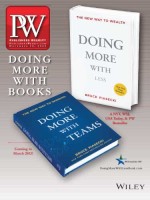In Paleofantasy: What Evolution Really Tells Us About Sex, Diet, and How We Live, University of Minnesota biology professor Marlene Zuk takes on the pseudoscience behind the “caveman lifestyle.”
Many believe our paleolithic ancestors lived perfectly in sync with their environment, and that we would therefore be healthier and happier if we lived as they did. Given the dearth of corroborative scientific rationale, why are these beliefs so common?
Nostalgia—whether for college, the 1950s, or our hunter-gatherer past—is always appealing. We often remember our childhood as much better than it actually was, perhaps because we were younger and life simply seemed more carefree then. The same thing applies to our ideas about evolutionary history; it sounds so idyllic to have lived without the worry of toxic waste, nuclear warfare, or taxes.
Are “paleofantasies” dangerous, or might they just be fun diversions?
Everyone loves those caricaturist diagrams of a fish morphing into an amphibian into a reptile into—eventually—a man hunched over a computer, though of course they aren’t an accurate portrayal of evolution. It’s amusing to imagine our distant past and links to our ancestors. The danger arises when we become evolutionary reactionaries, assuming that change comes slowly and is bad when it first arrives. As it turns out, neither is exactly true. Evolution sometimes happens quickly, sometimes slowly, and the really interesting question is what determines its rate. Any form of pseudoscience is risky.
Which “paleofantasy” do you find the most humorous?
The obsession with dietary minutiae is amusing; some paleo diet bloggers argue passionately about whether or not a particular food (e.g., watermelon) is acceptable, when the truth is virtually all of our modern foods are very different from their wild forebears. And we wouldn’t want it any other way; for instance, teosinte, the ancestor of corn, is a pretty scrawny specimen.
What’s the secret to making scientific topics accessible and entertaining without dumbing them down?
I wholeheartedly agree with Steven Pinker, a terrific writer, who said in a recent lecture about communicating science that one should never condescend to readers. I also tend to have a conversational writing style; many of my friends comment that they can hear me talking when they read my work. I’ve never known exactly how to take that, since it’s not clear to me how else one would write, other than more or less how one speaks—but it seems to work.



 Volume 259
Issue 50
12/10/2012
Volume 259
Issue 50
12/10/2012





